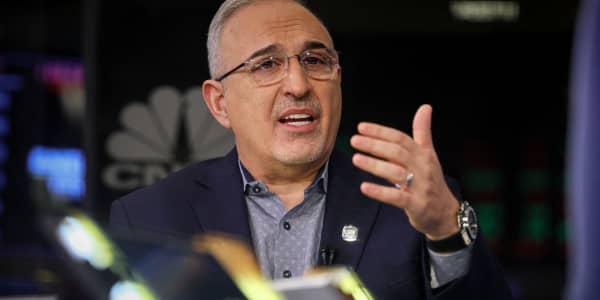As companies scramble to attract and retain talent, a growing focus on how to improve diversity, equity, and inclusion initiatives is gaining strength.
However, there are key differences between diversity, inclusion and belonging,Erin Thomas, head of diversity, inclusion and belonging at Upwork, at the recent CNBC Work Summit in October.
"We like to think of belonging as a feeling, fit, or enablement, to show up authentically at work in a safe environment," Thomas said. "Inclusion is a practice, talking about decisions made on a microscale, who's invited to a meeting, and on a macroscale, who's getting promoted and getting pay increases."
Diversity is about representation, she added. This is where companies look at representation across levels and commit to bringing in employees that represent all demographics.
"All of these things swirl together to shape culture and to shape workplaces. You can't have one of these without the others," Thomas said.
Use data to track and disclose DEI initiatives
One way that companies can showcase their diversity, belonging, and inclusion is by using data to track and disclose DEI initiatives, said Paulette Alviti, executive vice president and chief people officer at Mondelez.
The snack company releases an annual report called "Snacking Made Right," which tracks and discloses ESG initiatives. Mondelez outlines standards and rating scales for ESG, and how it measures goals and progress, according to the 2021 report.
Alviti said Mondelez discloses certain DEI metrics, like annual compensation for women in senior leadership, and she said this increases transparency for its employees.
"We're increasing up to almost 40% of our senior leaders who are women," Alviti said. "We're also tracking Black management representation in the U.S., and we know the progress against those goals, and sharing and disclosing them."
The 2021 report shows how Mondelez is tracking on its goals to increase Black representation in management in the U.S., starting at 3.2% in 2020 and up to 5% in 2021, and increasing women in executive leadership, starting at 18% in 2018 and up to 39% in 2021.
Alviti said companies should also track the development and education of its employees, as a DEI imperative.
"We have robust development actions for our people, where we measure our depth of talent results," Alviti said. "We're looking at succession readiness, because folks want to know that they have a thriving career ahead of them and there's opportunities internally for them."
How to stay true to values and purpose
"Codify your company's values and working principles," Thomas said. "These are lateral, behavior expectations that every team member will be measured and assessed against."
Thomas said these expectations should be incorporated into employee performance reviews, into profitability reports, and into other KPIs and metrics across the company.
"This is an important reinforcement and safeguard to monitor during key times of year and during formal performance management decisions," Thomas said. "Ask, 'Who's fitting in our culture?' and 'Who's harmful to our culture?'"
Another safeguard to upholding your company's values, Thomas said, is having a protocol in place for egregious behaviors of employees and those who represent the company. Employees should feel safe raising flags, without repercussions.
"From the most crisis situations to softer situations, if someone is not pulling their weight to enhance your culture, make sure that it counts for something, and reward those who are carriers of the culture," she said.
How to push back against diversity fatigue
"Diversity fatigue is very real, and there's a lot of research on backlash from DEI initiatives," Thomas said. "I think a lot of organizations are well-intentioned, but it's really important to lay this foundational work around how DEI is critical to the mission and goals of your organization."
Companies need to communicate how DEI initiatives are a set of behaviors and outcomes that will be measured across all employees, and how people will be held accountable against these standards.
"The accountability piece is about taking action, both positive and negative, depending on how folks show up," Thomas said. "Cascading this understanding and driving attitude and behavioral change is a sequence that needs to be scaffolded out."
If companies don't drive these changes and conversations, Thomas said, employees can feel disempowered and unequipped to follow through on the expectations that companies have laid out for them.
"One of the scarcest resources from a workforce is time and attention, so providing a menu of small to large commitments that any individual can make and take is the way to spread out [DEI] investments," Thomas said.
To join the CNBC Workforce Executive Council, apply at cnbccouncils.com/wec.






